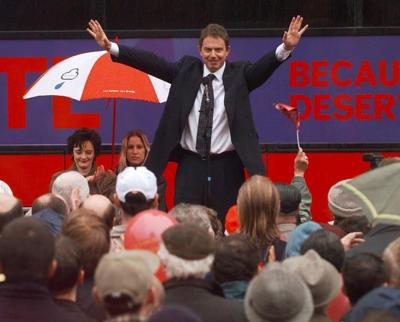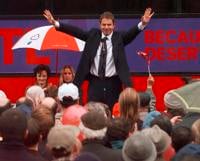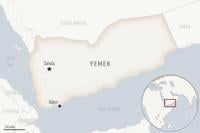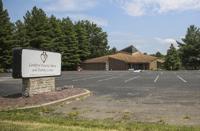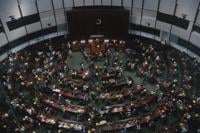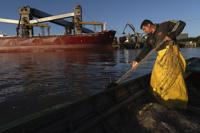LONDON (AP) — Britain’s upcoming general election is widely expected to lead to a change of government for the first time in 14 years. Many analysts believe it will be one of the country’s most consequential elections since the end of World War II.
Ahead of the July 4 vote, The Associated Press takes a look back at other landmark U.K. elections since the war.
____
In 1997, the Labour Party had been out of power for longer than it has been now — 18 years compared to the current 14.
When it lost the 1992 election to John Major's Conservatives, many questioned whether it would ever be able to win power again.
So it was quite a turnaround when Labour, under the leadership of the youthful . “New Labour, New Britain” was the party’s slogan, and “Things can only get better” by D-ream was its theme song.
Under Blair, Labour won a majority of 179 seats, even bigger than the party's victory over Winston Churchill's Conservatives soon after the defeat of Nazi Germany in 1945. The Conservatives ended up with just 165 of the 650 seats in the House of Commons, their worst result since 1906.
One factor for the Tories' defeat was the economic crisis of Sept. 1992, when the British pound was ignominiously ejected from a European exchange rate system. It was difficult to dislodge widespread misgivings that the government was losing control of the economy.
Major also had to contend with a series of financial and sexual scandals within his Conservative Party in the years running up to polling day. The party was also deeply divided over the U.K.'s place within the European Union, even though Major had negotiated an opt-out for the country from joining in the creation of a common currency, the euro. He called some of his recalcitrant Cabinet ministers “the bastards” in an unguarded moment.
But perhaps most importantly, Blair's centrist policies did not frighten voters who had withheld their support from Labour for a generation.
Blair would lead Labour to three straight election wins and spend a decade as prime minister, longer than any other leader of the party.
His supporters cite notable domestic achievements including the signing of the in 1998, which largely brought an end to decades of sectarian violence in Northern Ireland. Blair's government also ratcheted up spending in the public services, such as schools and hospitals, and oversaw the longest period of economic growth in Britain in the post-war era.
However, he remains a hugely controversial figure in Britain because of his support for the U.S.-led war in Iraq in 2003.
Some within the Labour Party were relieved when Blair quit in 2007 and handed power to his long-time Treasury chief Gordon Brown. Unfortunately for Brown, the global financial crisis was just around the corner.

